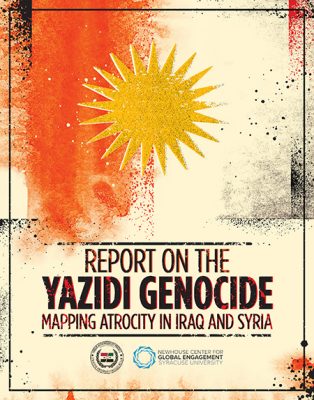250 Years Later, Declaration of Independence Still Challenges, Inspires a Nation: A Conversation With Professor Carol Faulkner
In June 1776, from a rented room in Philadelphia, Thomas Jefferson penned the first draft of the document that would forge a nation. The stakes were high, amidst the ongoing war with the British, to find the right words to…


 Now, a white paper published by the Syracuse University
Now, a white paper published by the Syracuse University